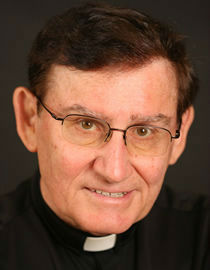
Spirituality
Could adhering to outlandish beliefs be the result of clever psychological manipulations that are influencing people's minds?

Hemrick
''A prudent question is one-half wisdom." This insight by English philosopher Francis Bacon possesses a fundamental principle for coping with today's disquiet: to use the power of the question. Let's examine some examples of the strength of the questions.
Could much of the disunity we are experiencing be traced to tribalism? Tribalism is based on the behavior and attitudes that stem from strong loyalty to one's own tribe or social group.
An article in Psychology Today says tribalism is bad when it brings people together "out of anger, jealousy and spite, not for collective well-being." And it adds that bad tribalism "is easy to provoke but not healthy to maintain. Staying angry is stressful" and detrimental to our health.
On the other hand, "good tribalism is difficult to build" but when practiced for the common good, it creates inspiring unity. Could it be that bad tribalism is increasing and is a major cause of our unrest?
Could adhering to outlandish beliefs be the result of clever psychological manipulations that are influencing people's minds?
Ralph Waldo Emerson wrote, "Sow a thought and you reap an action; sow an act and you reap a habit; sow a habit and you reap a character; sow a character and you reap a destiny." Are many of the words and images that we hear and see being used without any responsibility for our destiny and that of our children? If so, how do we combat this?
As ironic as it may sound, is employing solitude the answer? Is it possible that our ability to develop our interiority is lacking? Interiority is needed to center our prudence and wholeness. Solitude enables us to earnestly develop the nobility of our character. Is the absence of thoughtful contemplation at the bottom of today's tumultuous times?
Have we slipped into an off-the-top-of-the-head atmosphere in which ideas are illogical, twisted and hollow -- hasty thoughts at the mercy of a lust for prestige and appeasement rather than being thoughtful and guided by truth? Is in-depthness on the decline? If so, are we looking to solitude and prayer to reclaim it?
The hope of raising questions is what leads to "what-would-happen if-we" questions -- follow-up questions that create healthy progress and a hopeful destiny.
- FatherEugene Hemrick is a columnist for Catholic News Service
Recent articles in the Spirituality section
-
Pushed off the platformMichael Pakaluk
-
Advice to fathersMichael Pakaluk
-
The higher you go liturgically, the lower you should go in service of the poorBishop Robert Barron
-
The Easter Season is the fleshly seasonMichael Pakaluk
-
Ripley and RupnikEffie Caldarola





